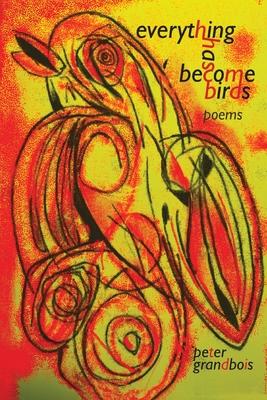The history of our relationship with mental illness is the history of silence. Everything Has Become Birds is an attempt to change that. For centuries the mentally ill have either been locked up, driven out of cities and towns by whip and lash, sterilized, lobotomized, and euthanized. The catalogue of horrors rivals the worst of humanities abuses and yet comparatively little has been written about it. How often the victims were silenced, told their pain wasn't real, their illness wasn't an illness at all but demonic possession, the result of "unnatural" urges, or a fault in their character. And yet, the history of mental illness is rich with geniuses who were not allowed to talk about their illness or feared to. Scientists and artists like Sir Isaac Newton, Beethoven, Leonardo Davinci or Vincent Van Gogh. Writers and philosophers such as Frederich Nietszche, Virignia Woolf, Ernest Hemingway, and Edgar Allan Poe. The poems in this book grew out of an attempt to give voice back to those who have suffered from mental illness, to allow them to speak about their experience in their own words then use the poems to create a dialogue that opens the reader to our shared humanity and the fact that, as the Cheshire Cat reminds us, "we're all mad here."

The history of our relationship with mental illness is the history of silence. Everything Has Become Birds is an attempt to change that. For centuries the mentally ill have either been locked up, driven out of cities and towns by whip and lash, sterilized, lobotomized, and euthanized. The catalogue of horrors rivals the worst of humanities abuses and yet comparatively little has been written about it. How often the victims were silenced, told their pain wasn't real, their illness wasn't an illness at all but demonic possession, the result of "unnatural" urges, or a fault in their character. And yet, the history of mental illness is rich with geniuses who were not allowed to talk about their illness or feared to. Scientists and artists like Sir Isaac Newton, Beethoven, Leonardo Davinci or Vincent Van Gogh. Writers and philosophers such as Frederich Nietszche, Virignia Woolf, Ernest Hemingway, and Edgar Allan Poe. The poems in this book grew out of an attempt to give voice back to those who have suffered from mental illness, to allow them to speak about their experience in their own words then use the poems to create a dialogue that opens the reader to our shared humanity and the fact that, as the Cheshire Cat reminds us, "we're all mad here."